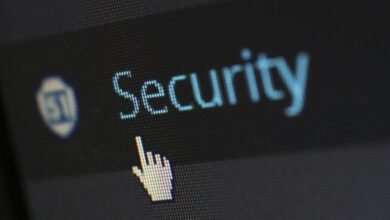The Caller Integrity Security Oversight Research Office plays a crucial role in fortifying telecommunications against identity-related threats. By implementing advanced methods such as multifactor authentication and biometric verification, the office seeks to enhance caller verification processes. This initiative is essential for protecting sensitive information and maintaining trust. However, the evolving nature of security challenges raises questions about the effectiveness of these measures in an increasingly complex landscape. What strategies will emerge next?
Overview of Caller Integrity Security Initiatives
As organizations increasingly rely on telecommunication systems, the need for robust Caller Integrity Security initiatives has become paramount.
These initiatives focus on implementing advanced caller authentication techniques, essential for verifying identity and preventing fraud.
Additionally, security protocol advancements play a crucial role in enhancing the integrity of communications, ensuring that sensitive information remains protected.
Thus, organizations must prioritize these initiatives to maintain trust in their telecommunications.
Methodologies Employed for Caller Verification
While various methodologies exist for caller verification, organizations must assess their specific needs to implement the most effective solutions.
Effective caller authentication techniques include multifactor authentication and biometric verification, leveraging advanced verification technologies.
These approaches enhance security by ensuring the identity of callers is accurately confirmed, thereby reducing the risk of fraud and maintaining integrity within communication systems.
The Importance of Trust in Communication Systems
Trust serves as a foundational element in communication systems, influencing the effectiveness and reliability of interactions between parties.
Trust building fosters a secure environment, promoting open dialogue and reducing barriers to collaboration. In turn, communication reliability hinges on this trust, as it encourages transparency and accountability.
Without trust, communication systems falter, undermining the potential for meaningful exchanges and collective progress.
Impact on Individuals and Organizations
The integrity of caller identification systems significantly impacts both individuals and organizations, shaping their interactions and operational efficiency.
Identity theft risks escalate when these systems are compromised, leading to severe privacy concerns. Individuals may experience financial loss and emotional distress, while organizations face reputational damage and financial liability.
Thus, ensuring robust caller ID integrity is essential for safeguarding both personal and organizational interests.
Conclusion
In the ever-evolving landscape of telecommunications, the Caller Integrity Security Oversight Research Office stands as a vigilant sentinel, tirelessly fortifying the digital fortress against identity theft and privacy breaches. Through layered methodologies like multifactor authentication and biometric verification, they weave a protective tapestry that fosters trust amid the cacophony of potential threats. As individuals and organizations navigate this intricate web, the office’s commitment to security ensures that communication remains a bastion of integrity, safeguarding sensitive information in a world rife with uncertainty.





